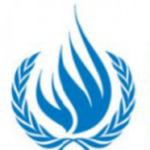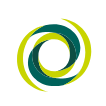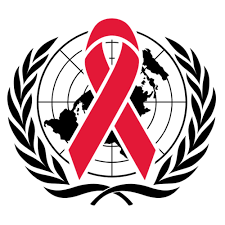Shaping Policies, Empowering
Africa's Development
A team of dedicated and trusted experts at your disposal.
What is APM?
Africa Policy Management (APM) is a Cameroon-based consultancy firm headquartered in Yaoundé and operational since 2021. Our mission is to deliver evidence-based, actionable insights and strategic support for advancing public sector efficiency, with a particular focus on procurement and expenditure management in health and social sectors. APM has a robust footprint in Central and West Africa, executing diverse assignments that have supported governments, donor agencies, and development organizations.
Our core competencies include procurement mapping, public expenditure tracking, and financial systems assessments. APM’s diverse team of highly skilled professionals, complemented by an extensive network of regional consultants, ensures we are uniquely positioned to meet the requirements of any assignment across West and Central Africa.
Our Services

Policy Research &
Analysis
We conduct comprehensive research to analyze policies and their impact, offering evidence-based recommendations tailored to Africa's unique developmental challenges.

Strategic Advisory & Services
Our team provides expert guidance to organizations and governments, enabling them to design and implement impactful strategies for long-term growth and sustainable development.

Capacity building &
Training
Through workshops, training programs, and knowledge sharing sessions, we strengthen the capabilities of individuals and institutions to drive sustainable development.

Advocacy &
Stakeholder Engagement
We foster dialogue among stakeholders, advocating for progressive policies and initiatives that promote equity and empowerment across Africa.

Monitoring &
Evaluation
We design and implement robust monitoring and evaluations frameworks to track success of projects and policies, ensuring transparency and continuous improvement.

Project Design &
Implementation
From concept to execution, we collaborate with partners to design and manage projects that deliver measurable benefits to communities across the continent.
Our Portfolio

Public Financial Management bottlenecks in health
(Aug. 2022 - Sep. 2022)
We conducted research for the development of case study report on health budget execution in the health sector and assessing the extent to which it has facilitated or hindered response to the covid-19 pandemic and roll out of the Covid-19 vaccine in Cameroon.
We collected necessary data, organize, and analyze the data for the purposes of developing the case study report for Cameroon.

Human Rights-Based Economic Analysis
(Sep. 2021 - Feb. 2022)
We pushed forward the integration of human rights-based and gender-sensitive approach into the COVID-19 response and recovery efforts of the United Nations Country Teams, Governments, National Human Rights Institutions, civil society, and other partners in the Central African region, with a view to ensuring that the impacts of the pandemic on economic, social and cultural rights are sustainably addressed.
We addressed inequalities, through rights-based economic analyses, targeted advocacy towards greater civic participation, social and infrastructural reforms in the areas of health and education, increased attention to specific sustainable development goals that strengthen economic and social development.

Training on budget advocacy
(Aug. 2021)
We trained civil society actors (champions) on budget advocacy. Incorporated practical exercises during which those trained apply their skills to understand and track GFF funding flows.
Supported the champions with tools to share with other coalition members on GFF funding flows.
We provided champions with the skills and resources to step down the training to the wider coalition (including tools and templates).

Impact Assessment
(Aug. 2021)
We did a needs assessment in the North-West and Southwest region in 7 sectors (Health, education, WASH, agriculture, nutrition and livelihood, youth employment and early recovery, gender, and gender-based violence).
Using a mix of qualitative and quantitative data collection tools and methods, investigated the current demographics, vulnerabilities, coping strategies, knowledge, attitudes, and practices among people who could benefit from improved services in the humanitarian sector.

Education Mapping
(June 2021 – July 2021)
We analyzed the context and impact of the crisis on education system outcomes in NW and SW. Identified the services of education currently offered in the NW and SW regions, the actors involved, purpose and results.
Evaluated the impact of the crisis on the education sector in the conflict-affected regions. Identified commonalities between both operating and non-operating institutions and characteristics peculiar to the catchment population using or not using these services.
We provided a mapping report which will feed into and facilitate the comprehension of the analytical and advisory document for the roll out of performance-based financing in education.

Health insurance scheme for IDPs
(Feb. 2021 – May 2021)
We defined and costed the health care service package for the health purchasing scheme, which is to include sexual and reproductive health services, family planning services as well as psychosocial support for vulnerable populations, internally displaced and survivors of gender-based violence from the Anglophone crisis in the NW and SW regions of Cameroon.
Estimated the financial resources needed to provide health coverage to the defined beneficiaries. This is also to include a consideration of the contributive capacity of the beneficiaries as well as of mechanisms to manage liquidity in the pilot phase of the scheme.

Health Financing
(Jul. 2019 – Jan. 2020)
We defined a roadmap for the elimination of HIV/AIDS user fees in country and putting in place a monitoring and evaluation framework.
Estimated the financial resources needed to off-set lost revenue for health facilities due to user fees elimination and to identify financial management mechanisms that will ensure a timely reimbursement of fees to health facilities.
Supported the organization of a focus group discussion with key stakeholders. Produced regular updates regarding progress with implementation of roadmap, challenges & solutions, next steps, and expectations from partners.

HIV/AIDS User Fees Elimination
(Dec. 2018 – Jun. 2019)
We defined a roadmap for the elimination of HIV/AIDS user fees in country and putting in place a monitoring and evaluation framework.
Estimated the financial resources needed to off-set lost revenue for health facilities due to user fees elimination and to identify financial management mechanisms that will ensure a timely reimbursement of fees to health facilities.
Supported the organization of a focus group discussion with key stakeholders. Produced regular updates regarding progress with implementation of roadmap, challenges & solutions, next steps, and expectations from partners.
Contact Us
Address
Round Point Express, Biyem-Assi
Entrée Saint Marc
apm.info@afpoma.org
Phone
+237676438367
+237677954865
+447774353167
